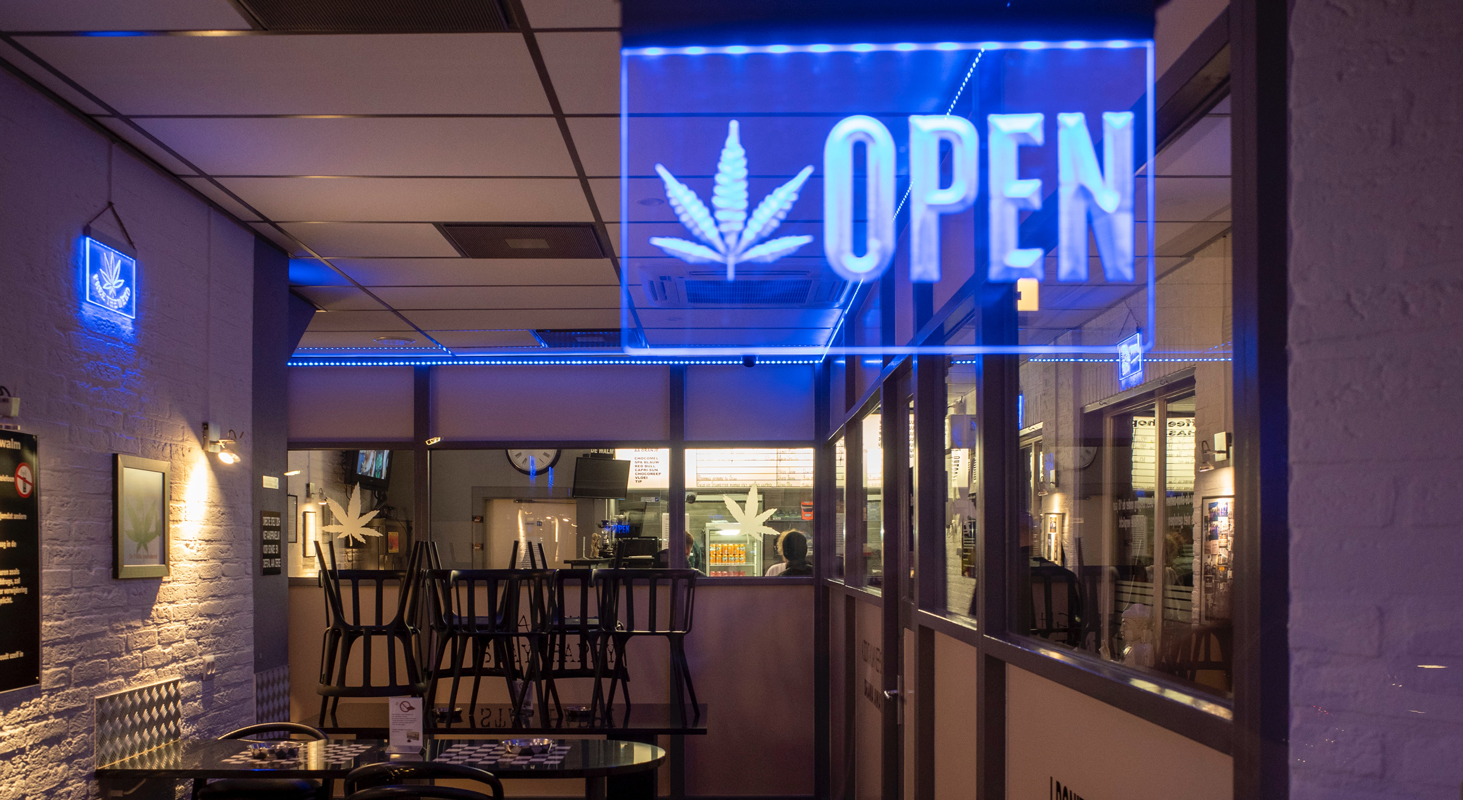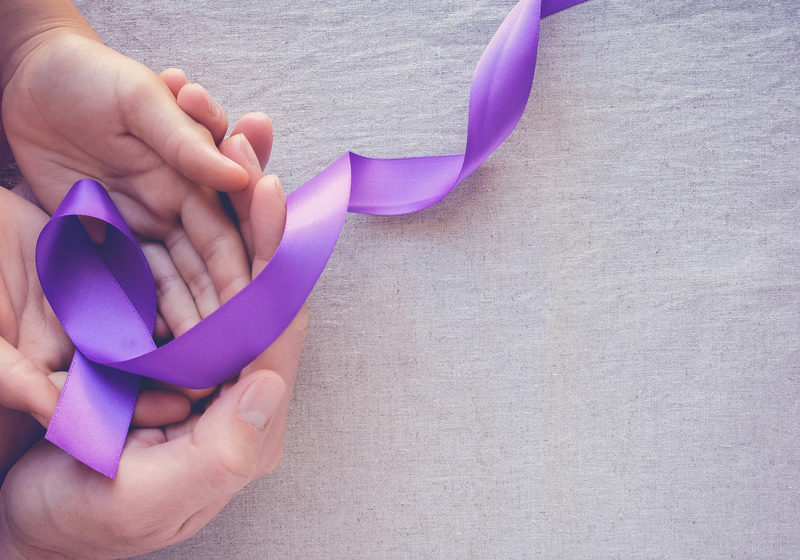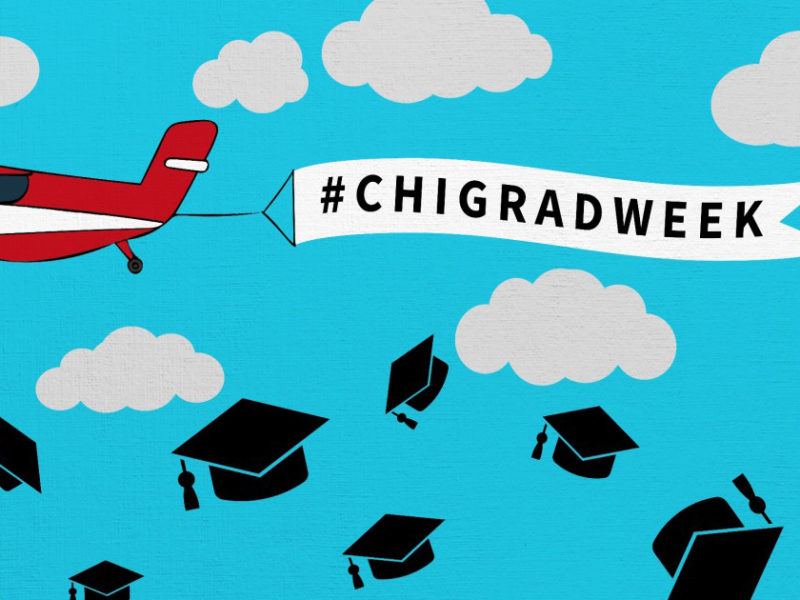
In Illinois, COVID-19 Is Sparking Up a New Interest in Cannabis
For nearly every industry, the COVID-19 crisis has brought about unprecedented disruptions. But in the cannabis industry (at least here in Illinois), the future is looking increasingly green.
With people at home for long stretches, and an uptick in general anxiety around the country, the interest in cannabis has reached an unexpectedly high level. Now that the controlled substance has made the transition from illegal to essential here in the Land of Lincoln, more consumers are trying it for the first time during this tumultuous moment. From online orders to curbside pick-up, there has never been this degree of enthusiasm for something that just four months ago was illegal to purchase recreationally in Chicago.
We sat down with Lisa Hurwitz, Chief Marketing and Innovation Officer at Grassroots—an innovator in the burgeoning industry as well as a Chicago Ideas Partner—to talk about how the crisis is changing the industry, what precautions they’re taking in response to the pandemic, and how this will affect the world of cannabis in the long run.
Chicago Ideas: What has been the impact this crisis has had on Grassroots’s operations?
Lisa Hurwitz (LH): We saw a significant increase in sales right after the essential business announcements came in March. And we continue to see very robust sales during this uncertain and stressful time as people are experiencing heightened anxiety and sleeplessness. Cannabis is providing significant relief. So people are prioritizing it.
We have seen a surge of interest in cannabis—people asking for product recommendations that are non-odiferous to help people cope with the added stress of being home-bound, around their families, and homeschooling. In Illinois we’ve seen a significant increase in edibles.
COVID-19 has driven a ton of new shoppers online. Grassroots dispensaries saw a 78 percent increase in orders placed online in March compared to February, including a 170 percent increase in first-time online orderers in March compared to February.
CI: How has coronavirus affected Grassroots’s supply chain?
LH: We are fortunate to have had great continuity on the supply chain. We have not seen a disruption in our own facilities or from other suppliers in our dispensary business.
But, we have had to make necessary adjustments to our operations on the Grassroots cultivation side to ensure the health and safety of our staff during this time.
These precautionary protocols include implementing a split-shift model for staff to limit exposure, per CDC guidelines; increasing our cleaning schedule; making hand sanitizer available at multiple locations throughout the dispensaries for patients and staff (not to mention diligent hand washing on a very frequent basis; educating employees on preventative measures provided by the CDC; and, finally, asking staff to please stay home if they have been exposed to COVID-19 or are not feeling well.
CI: What has been one of the biggest challenges for keeping Grassroots’s operations functional during this time? How has the company responded?
LH: The biggest challenge is keeping our staff healthy and positive. We are continually updating our policies to keep our facilities clean and safe. In our dispensaries, a big percentage of our business has moved to online: pre-ordering and curbside pick-up. We have been able to implement a cashless mobile payment app to aid in keeping the transaction as contact-free as possible. Additionally, we have implemented “appreciation pay” for our frontline dispensary workers.
CI: What will the long-term impact of COVID-19 be on the cannabis industry in Illinois?
LH: There are a few key shifts we expect to be a lasting impact.
Cannabis is essential now. Cannabis quickly went from illegal to essential this year and this acceptance of cannabis as an essential product in people’s lives is going to carry over. People are going to continue to see cannabis as necessary to their lives.
The shift in purchase to online and curbside pickup will also stick around. Operationally, we continue to see people move to online channels for actual purchasing. Online orders have grown dramatically, and people are quickly taking advantage of pre-orders online, curbside pick-up, and cashless payment services like CanPay. This behavior is likely to last.
On the marketing side, digital channels have exploded as people are online now more than ever. At Grassroots, we have been able to take advantage of this through our digital, social, and CRM channels to stay connected with our consumers.
We see all of these shifts as lasting for Illinois.




